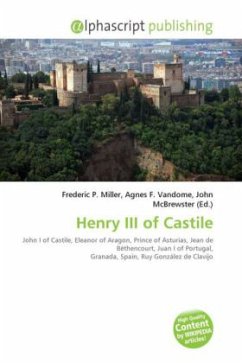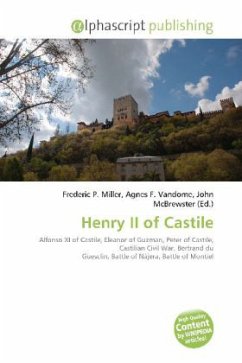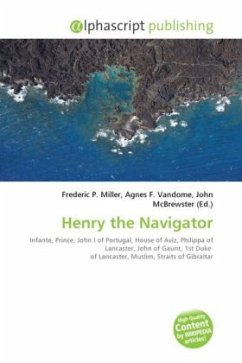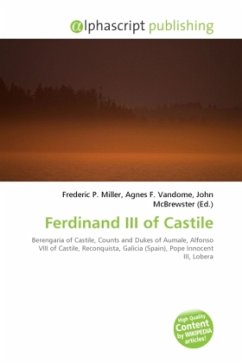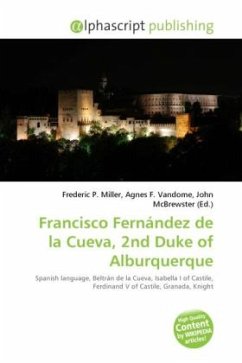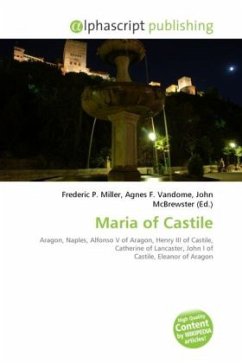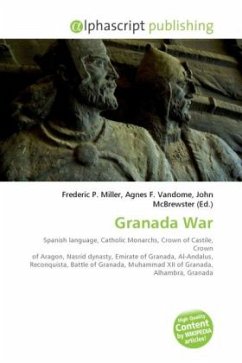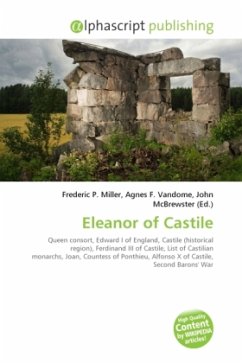Please note that the content of this book primarily consists of articles available from Wikipedia or other free sources online. Henry III (October 4, 1379 December 25, 1406), sometimes known as Henry the Sufferer or Henry the Infirm (Spanish: Enrique el Doliente) was the son of John I and Eleanor of Aragon, and succeeded him as King of Castile and León in 1390. Henry was born in Burgos, the capital of Castile. Before becoming king, he was known by the title Prince of Asturias, designating him as the heir apparent. After succeeding to the throne at 11, Henry took power at 14. Despite his nickname, he engaged in a vigorous foreign policy and maneuvers during the first few years of the 15th century. He was able to pacify the nobility and restore royal power. During his reign, the Castilian fleet won several victories against the English; Henry sent a naval fleet in 1400 that destroyed Tétouan in North Africa, a pirate base. In 1402, Henry began the colonization of the Canary Islands, sending French explorer Jean de Béthencourt. He deflected a Portuguese invasion with an attack on Badajoz, finally signing a peace treaty with Juan I of Portugal in 1402.
Bitte wählen Sie Ihr Anliegen aus.
Rechnungen
Retourenschein anfordern
Bestellstatus
Storno

